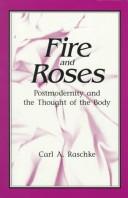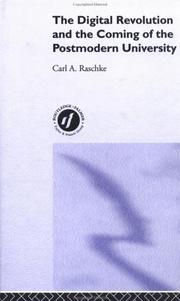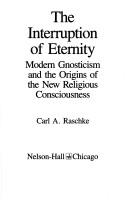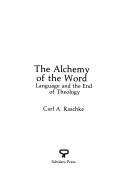| Listing 1 - 10 of 16 | << page >> |
Sort by
|

ISBN: 0585062730 9780585062730 0791427293 0791427307 143841692X Year: 1996 Publisher: Albany : State University of New York Press,
Abstract | Keywords | Export | Availability | Bookmark
 Loading...
Loading...Choose an application
- Reference Manager
- EndNote
- RefWorks (Direct export to RefWorks)
Human body --- Human body. --- Postmodernism. --- Postmodernism --- Post-modernism --- Postmodernism (Philosophy) --- Arts, Modern --- Avant-garde (Aesthetics) --- Modernism (Art) --- Philosophy, Modern --- Post-postmodernism --- Body, Human --- Human beings --- Body image --- Human anatomy --- Human physiology --- Mind and body --- Body, Human (in religion, folk-lore, etc.) --- Religious aspects. --- Religious aspects

ISBN: 0415369835 Year: 2004 Publisher: London RoutledgeFalmer
Abstract | Keywords | Export | Availability | Bookmark
 Loading...
Loading...Choose an application
- Reference Manager
- EndNote
- RefWorks (Direct export to RefWorks)
Book
ISBN: 0830899960 9780830899968 9780830851294 Year: 2016 Publisher: Downers Grove, Illinois : IVP Academic,
Abstract | Keywords | Export | Availability | Bookmark
 Loading...
Loading...Choose an application
- Reference Manager
- EndNote
- RefWorks (Direct export to RefWorks)
Political theology. --- Critical theory. --- Christianity and the social sciences --- Religion and sociology --- Religion --- Theology --- Postmodernism --- History --- Philosophy --- Methodology. --- Religious aspects.

ISBN: 0882293745 Year: 1980 Publisher: Chicago Nelson-Hall
Abstract | Keywords | Export | Availability | Bookmark
 Loading...
Loading...Choose an application
- Reference Manager
- EndNote
- RefWorks (Direct export to RefWorks)
Book
ISBN: 9780813933061 9780813933078 9780813933085 0813933080 1283631202 9781283631204 9786613943651 6613943657 0813933064 0813933072 Year: 2012 Publisher: Charlottesville University of Virginia Press
Abstract | Keywords | Export | Availability | Bookmark
 Loading...
Loading...Choose an application
- Reference Manager
- EndNote
- RefWorks (Direct export to RefWorks)
Postmodernism --- Semiotics --- Religious aspects --- Badiou, Alain --- Derrida, Jacques. --- Žižek, Slavoj
Book
Year: 1982 Publisher: S.l. American academy of religion
Abstract | Keywords | Export | Availability | Bookmark
 Loading...
Loading...Choose an application
- Reference Manager
- EndNote
- RefWorks (Direct export to RefWorks)
Book
ISBN: 9781474454551 Year: 2019 Publisher: Edinburgh Edinburgh University Press
Abstract | Keywords | Export | Availability | Bookmark
 Loading...
Loading...Choose an application
- Reference Manager
- EndNote
- RefWorks (Direct export to RefWorks)
Book
ISBN: 9780231173841 Year: 2015 Publisher: Ithaca Cornell university press
Abstract | Keywords | Export | Availability | Bookmark
 Loading...
Loading...Choose an application
- Reference Manager
- EndNote
- RefWorks (Direct export to RefWorks)

ISBN: 0891303197 0891303200 Year: 1979 Publisher: Missoula Scholars press
Abstract | Keywords | Export | Availability | Bookmark
 Loading...
Loading...Choose an application
- Reference Manager
- EndNote
- RefWorks (Direct export to RefWorks)
Hermeneutics --- Language and languages --- Philosophical theology --- Religious aspects --- Christianity
Book
ISBN: 9781474454575 1474454577 1474454550 9781474454551 9781474454582 1474454585 Year: 2019 Publisher: Edinburgh : Edinburgh University Press,
Abstract | Keywords | Export | Availability | Bookmark
 Loading...
Loading...Choose an application
- Reference Manager
- EndNote
- RefWorks (Direct export to RefWorks)
Shatters the common academic myth that neoliberalism is simply free market fundamentalism plus political conservatism Explains how neoliberalism is a regime of culture and values – far more than political economy Turns much of today’s progressive politics upside down by showing that many of the would-be liberators are really the exploiters: as Marx and Engels declared, the ‘ruling ideas’ of our era must be unmasked as ‘the ideas of the ruling class’ Offers a vision of what might lie beyond neoliberalism Connects the analysis of neoliberalism to the cultural diagnosis of Friedrich Nietzsche, who declared ‘God is dead’Neoliberalism in recent years has become the operative buzzword among pundits and academics to characterise an increasingly dysfunctional global political economy. It is often – wrongly – identified exclusively with free market fundamentalism and illiberal types of cultural conservatism. Combining penetrating argument and broad-ranging scholarship, Carl Raschke shows what the term really means, how it evolved and why it has been so misunderstood. Raschke lays out how the present new world disorder, signalled by the election of Trump and Brexit, derives less from the ascendancy of reactionary forces and more from the implosion of the post-Cold War effort to establish a progressive international moral and political order for the cynical benefit of a new cosmopolitan knowledge class, mimicking the so-called civilising mission of 19th-century European colonialists.
E-books --- Neoliberalism. --- Political theology.
| Listing 1 - 10 of 16 | << page >> |
Sort by
|

 Search
Search Feedback
Feedback About UniCat
About UniCat  Help
Help News
News